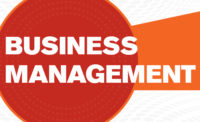Unless they have a referral from someone they can trust, most people start their search for an HVAC contractor online. That approach typically yields pages and pages of results that can leave consumers confused and overwhelmed. So, how do you help these prospective customers sort out the options and understand that your business is the best choice?
Part of the answer lies in certifications: particularly those earned from third-party, unbiased sources known for their credibility. Third-party certifications are a great way to distinguish your company from the competition because they easily identify you as a business that employs products or practices that meet standards set by an independent organization. Third-party certifications also resonate with consumers because they aren’t just declarations made by a company about their products and services. They’re also more compelling than endorsements you might receive from an association or organization you belong to. In short, because third-party certifications carry no conflicts of interest, they help build immediate trust between you and potential customers.
Let’s take a look at the different types of third-party certifications available.
For starters, there are product certifications. These help both you and your customers easily identify what distinguishes a product from others in the market. In some cases, third-party product certifications can serve as a “seal of approval,” offering consumers a higher level of confidence in their purchase. One example is the Energy Star label that appears on products that have met strict energy efficiency criteria set by the U.S. Environmental Protection Agency (EPA) or the U.S. Department of Energy (DOE). Offering Energy-Star-rated products allows you to appeal to consumers interested in energy savings – providing you with a clear advantage over competitors who don’t offer certified products. As a certification, Energy Star has high consumer brand awareness, with 91% of households recognizing the label and 56% knowingly purchasing an Energy Star product in the last 12 months, according to a survey conducted by the Consortium for Energy Efficiency.
Professional certifications are another great way to differentiate your business, particularly among consumers who want a way to evaluate the skill level of your technicians. Typically, these types of certifications are earned by completing courses or training programs and taking an exam to confirm command of the subject. Examples of professional certifications include the North American Technician Certification (NATE) and the EPA 608 certification, which is required for technicians who service, maintain, repair, or dispose of refrigerant containing equipment. The Building Performance Institute (BPI) certification is another example, ideal for HVAC professionals who want to learn how to view homes as an entire system and understand how energy is used and wasted throughout.
Installation certifications take into account multiple aspects of the service and product to highlight processes that ensure high-performance. The HVAC Quality Installation (QI) standard is one that certifies professionals who have demonstrated the ability to effectively design an HVAC system. Pearl Certification is another option for those who want to target customers who care about energy-efficient, high-performing homes. Through Pearl Certification, HVAC, solar and home performance professionals gain verification of their work, while offering homeowners a home certification that documents their home’s energy-efficiency, health, comfort, and other performance assets. Using a 1,200-point scoring methodology based on a home’s verified Pearl score, the home can receive a Pearl Certification level of Asset, Silver, Gold or Platinum.
Once you decide which certifications are right for you and you earn those designations, focus on leveraging your new credentials. The first step is to tell your customers. Mention your certifications in your very first call with potential customers and explain the qualifications required for such designations. That should give you an immediate credibility boost and an advantage over other companies. It’s also crucial to integrate your certifications into all of your sales and marketing materials, including your proposals, brochures, and contracts. You might even consider creating a separate landing page on your website to highlight your certifications.
It’s clear that third-party certifications offer an effective way for you to distinguish your business in a crowded marketplace. They not only help you easily build trust with new customers, but also demonstrate your commitment to higher-quality products and services, which should also prove why your services are worth a premium.










